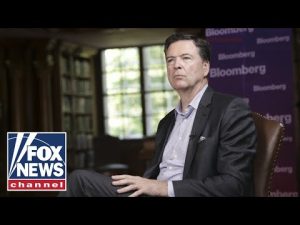In today’s world, every move to protect the innocence of our children is met with a storm of opposition from some factions who claim it’s an attack on free speech. When discussing age verification laws for online content, dissenters appear to be more interested in protecting so-called freedoms over safeguarding the mental and moral health of our youth. They argue that enforcing age verification will inhibit free speech, encourage users to seek alternatives, and lead to ridiculous extremes like requiring age checks on any site deemed educational. But let’s break this down with a little common sense.
Firstly, the notion that pornography is covered by free speech protections is a misstep. There’s an enormous difference between expressing opinions or engaging in constructive discourse and producing explicit content. Pornography isn’t art or expression; it’s the selling of carnal acts for profit. To call it speech is to trivialize true free expression. If protecting our children means a few websites require an extra click or two, then so be it. This isn’t censorship; it’s common decency.
When it comes to users possibly refusing to verify their ages, the critics suggest there might be a mass exodus to unregulated corners of the internet. Recent data indicates that when compliant sites require verification, users indeed migrate to platforms “that operate outside of the law, which are often even more dangerous.” Research demonstrates that existing age verification laws do not work because users shift to non-compliant platforms. For instance, Louisiana saw a significant reduction in Pornhub traffic by 80%, but an overall reduction of 51% for compliant platforms was observed when these laws were implemented. Meanwhile, searches for non-compliant sites like XVideos increased by 48.1%, and VPN usage saw a rise of 23.6%.
The supposed slippery slope where we wouldn’t know what qualifies as a pornography site is a strawman at best. In reality, the difference between educational content and pornography is like night and day. Responsible regulation has always been about precision and protecting the vulnerable, not a blanket banning of anything remotely questionable. Besides, using confusion as a shield for inaction belittles the intelligence and competence of policymakers.
It’s clear the objections against age verification seem more like desperate attempts to cloud the real issue—protecting children and holding accountable those who profit off poisoning the internet. We are not on a crusade against freedoms but are adamant in our duty to shield young minds from content that irrevocably alters how they perceive relationships and respect. Maybe those resistant to change are the ones who should take a long, hard look at their priorities.
In conclusion, the arguments against age verification reveal more about the defenders than the laws in question. At its heart, this debate isn’t about inhibiting speech but reclaiming our right to uphold standards in a digital age. Society has a duty to care for its most impressionable citizens, and sometimes that means making tough choices. And if, in the process, some dubious industries face tougher times, maybe it’s a sign that they’ve enjoyed their free ride long enough.







